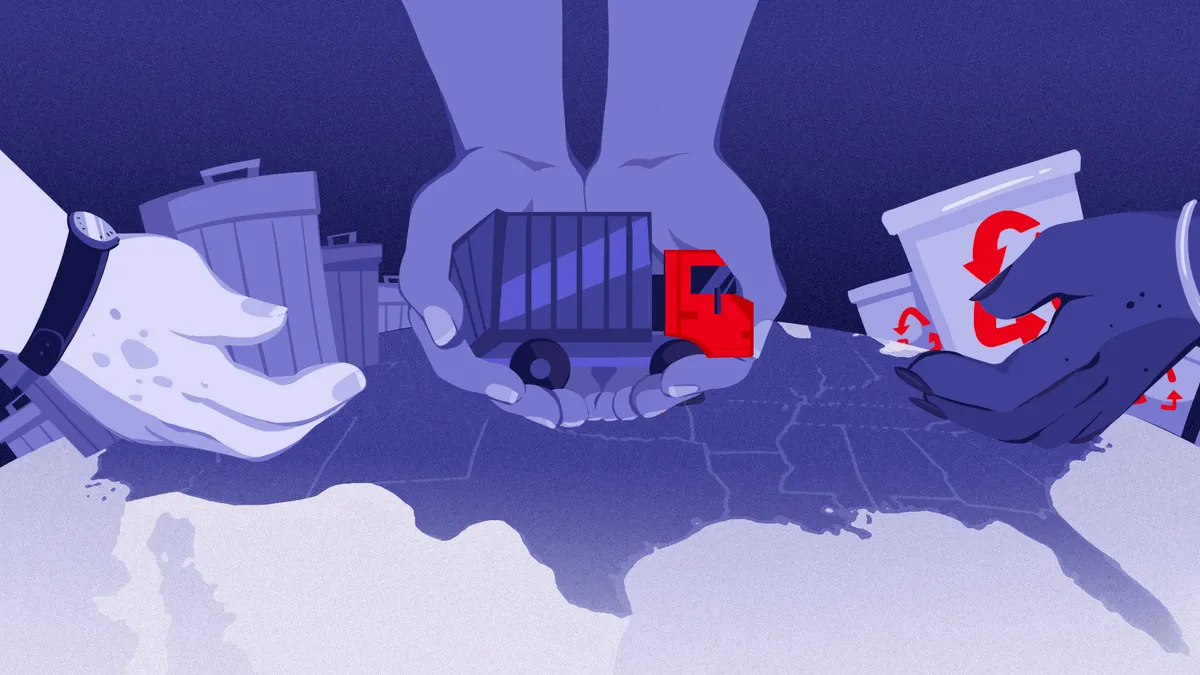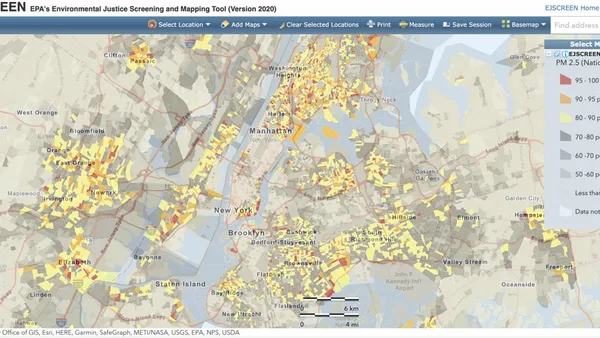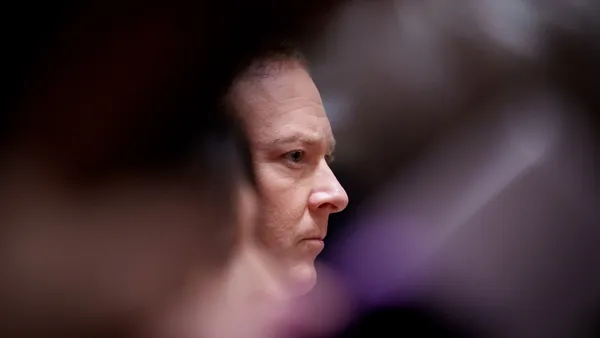As a national reckoning over systemic racism continues, major companies in the waste and recycling industry report launching or enhancing efforts to make their operations more diverse and inclusive — as significant work lies ahead.
Multiple companies in the industry say they have been working on this issue in some form for years, describing it as an integral part of improving corporate culture along with recruitment and retention rates. Others have only recently begun to have these conversations in more detailed terms following heightened interest from investors, employees and customers. Given the evolving nature of this work, and the limited amount of data disclosed by even some of the largest players, direct comparisons are difficult to make.
Anecdotally, it has long been recognized that the U.S. waste and recycling industry is largely White and male when it comes to many higher-level positions.
The most precise data available from the Equal Employment Opportunity Commission (EEOC) – which covers the broader "waste management and remediation services" category and substantially undercounts the total workforce – estimates 53% of those employed in the sector during 2018 were White. Among the total workforce, 81% were male and nearly 74% of executives or senior managers were White males. This compares to 52% and 59%, respectively, across the U.S. private sector workforce based on EEOC data.
Expectations are on the rise for more tangible action to improve diversity of all types, from the front lines to the boardroom, with the issue taking on new urgency this year.
Public stances
Following the police killing of George Floyd in May and resulting protests, companies and organizations of all types released statements in solidarity with calls for more action against systemic racism.
Waste Management CEO Jim Fish put out a letter saying "I choose to be part of the solution." Republic Services President Jon Vander Ark released his own, stating "While we can't fix society, change can start with us." Other leaders expressed their own sentiments internally and externally. Many hosted opportunities for employee discussions in the weeks that followed.
While this societal focus may have accelerated some efforts, it built on a quiet but widely recognized sense that the waste sector has work to do on improving diversity. Fish noted this during a 2018 WasteExpo panel, saying his company had not historically been as focused on these issues but that was beginning to change.
“Focusing on it and actually doing something are two different things," he said. "Minorities make up the majority of our driver ranks, but do they make up the majority of our management ranks? Not even close."
That remains the case as of Waste Management's latest sustainability report, with "ethnic minorities" comprising 46% of the total workforce as compared to 22% of the company's senior leadership team through 2019. Numbers in certain categories have ticked up over the years, and Waste Management's overall workforce has more Black and Hispanic employees than the national average, but leaders have identified multiple areas to improve.
Following the hiring of Chief People Officer Tamla Oates-Forney from GE in 2018, Waste Management also hired Senior Director of Culture & Engagement Tiana Carter last summer as part of an evolving HR approach at the company.
Speaking recently, Carter outlined numerous initiatives started during her first year that are part of this updated focus on employee engagement. Some highlights include launching a Culture Council with leadership, developing a Commitments & Values ambassador program with 700 participants, distributing new employee resource materials in multiple languages and meeting with workers in 100 different markets over her first 100 days.
"I think there's a big gap on diversity and inclusion in general, kind of across the board, inside and outside of [the waste industry] on people feeling, inclusion and diversity means that's at the exclusion of somebody else. When in reality it's at the inclusion of all, and how do we create a more equitable environment for everyone to thrive and be successful?" said Carter.
In her view, making these ideas a core part of company culture is especially important for big waste sector companies that have a long tradition of growing through acquisition. Just as it's common to hear executives talk about aligning safety cultures during the post-acquisition integration period, Carter said this area must be given similar attention.
"Inclusion and diversity is a core company value. So you can't opt out of inclusion and diversity. It's like you can't opt out of wearing a seatbelt if you drive a truck."
In an effort to formalize this mindset, beyond Waste Management including "people first" as one of its five core values, Carter successfully pitched two new goals to the board of directors this spring. As laid out in its latest sustainability report, the company now aims to "achieve ethnic diversity in each segment of our workforce, with emphasis on leadership, that is greater than or equal to that of the U.S. workforce standards" and "lead the industry in female representation at all levels, with a special emphasis on frontline and women in leadership" by 2025. EEOC data will be one of the benchmarks used to measure this progress.
| Waste Management Workforce | Ethnic Minorities | Women |
|---|---|---|
| Senior Leadership Team (SLT) | 22% | 33% |
| Executives (including SLT) | 13% | 20% |
| Managers | 23% | 20% |
| Total Workforce | 46% | 18% |
| Data through 2019, terminology from WM |
As Waste Management and others work toward improving diversity at all levels, they're expected to have the support of investors and key stakeholders. The multi-year labor shortage for frontline positions such as drivers and mechanics has already increased the industry's focus on reaching underrepresented groups and making positions at all levels more attractive for a wider pool of candidates. From the standpoint of environmental, social and governance (ESG) practices, taking these steps has a proven track record in the corporate world more broadly.
“Ultimately people are not only the biggest cost, but the biggest driver of a company’s success in the waste and recycling industry. The more you can expand the pool of qualified and motivated productive talent the better. The more you can bring a diversity of backgrounds and perspectives in general we believe it improves business processes and outcomes," said Noah Kaye, a managing director and senior research analyst at Oppenheimer & Co.
Per ESG reports and communication with other major industry companies, the issue has been gaining traction in recent years.
Republic Services points to its Mission of Supporting an Inclusive Culture (MOSAIC) Council that works with the company's office of inclusion and diversity to "leverage our best thinking to improve our culture and better serve our customers." The company launched specific resource groups for women in 2017, veterans in 2019 and Black employees earlier this year; with plans to launch additional groups in the coming years. In its latest ESG report, Republic also pointed to ongoing efforts such as a SheDrives recruitment campaign that has been particularly active in Baton Rouge, Louisiana.
One group that is not convinced by some these corporate efforts so far is the International Brotherhood of Teamsters. While the union has seen some incremental progress on bringing more women into frontline roles, it shared anecdotal reports across multiple companies about other issues. This includes wage disparities between different demographics of frontline workers, a lack of diversity in local management positions, limited opportunities for advancement and more. Citing one example, the Teamsters said Republic's main hauling yard in Atlanta has an estimated 90% Black drivers and almost all White supervisors.
“You just don’t see the upward mobility into these salaried jobs like you would expect," said Chuck Stiles, director of the national union's solid waste division, speaking about multiple companies. “I’ve never known anybody in this industry to move on to anything other than like a route supervisor or a supervisor over say front-end or residential."
The union, which has been waging a broader campaign against Republic on multiple fronts, also described Vander Ark's June statement against racism as a publicity "ploy" to help the company's image. The company declined to address the union's specific statements, pointing to Republic's recently awared grants for "minority-owned businesses" and responding generally.
"Republic Services has long been committed to inclusion and diversity, and we continue to take steps to ensure that our organization is a model for inclusiveness and reflects the equality that should exist in our society," said a spokesperson.
| Republic Services Diversity | Representation in Company |
|---|---|
| Non-White employees in total workforce | 47.3% |
| Women in total workforce | 18.6% |
| Women in all management | 21.6% |
| Women in junior management | 21% |
| Women in top management | 17.4% |
| Data through 2019 |
Another industry company that has been active in this area is Covanta. The company pointed to its own Diversity, Equity and Inclusion Council, which also includes multiple resource groups, and membership in the CEO Action for Diversity & Inclusion coalition among the examples of its work in this space. Waste Management, Republic Services and Waste Connections are similarly listed as members of the coalition.
Covanta's vice president of continuous improvement was also recently selected for a racial equity fellowship through the coalition, which will support ongoing work around training and other areas. At the management level (director and higher), a diverse slate of candidates is said to be sought and encouraged for every job opening.
"This is leading to definitive changes in hiring processes and the composition of executive ranks," said Marcy Martin, vice president of talent acquisition and talent management, in a statement. "Bringing in a diverse talent pool is just the first step. It is vitally important to make sure that employees are empowered to bring their experiences and skill set to the table. To help further our mission of inclusion, we have developed diversity and inclusion educational awareness training for employees and managers."
Covanta noted this process was completed in 2019, with a new installment launching this year around unconscious bias in talent processes. When it comes to tracking demographics, Covanta provides some of the most detailed job category information of any public company in the industry.
| Covanta Diversity | Workforce Proportion |
|---|---|
| Women in total workforce | 11% |
| Women in executive workforce | 18.8% |
| Women in hourly workforce | 2.9% |
| Ethnic minorities in total workforce | 28% |
| Ethnic minorities in executive workforce | 10% |
| Ethnic minorities in hourly workforce | 32% |
| Data through 2018, terminology from Covanta |
This latter area, one multiple companies have discussed working on, is considered particularly important by experts as organizations strive to diversify their ranks – especially at higher levels.
Consulting firm Korn Ferry, in partnership with the Executive Leadership Council, highlighted some of these challenges when it interviewed 28 Black executives overseeing significant profit and loss operations at Fortune 500 companies in 2019. A report on that research found these Black workers "reported having to work twice as hard — and accomplish twice as much — in order to be seen on the same level as their peers."
Among many takeaways, Korn Ferry advised large corporations to ensure their cultures are inclusive of all people, be intentional about sponsorship to help new leaders rise up, be mindful of giving "glass cliff" tasks (described as "uncommonly high-risk assignments where few could have succeeded") to Black leaders over others and maintaining open dialogues about all of these issues.
As the report concludes, having a corporate program is one thing, but "many organizations will continue to waste time and money on underdeveloped D&I initiatives if they aren’t truly prepared to tackle this issue head-on" by focusing on challenges surrounding formal policies, informal practices and unconscious bias. Improving this culture, according to report co-author and senior client partner Audra Bohannon, is an ongoing task and a "solvable problem" if companies are serious.
“There is a better answer when you think about inclusion and you think about creating cultures where all people can do their best work," said Bohannon, emphasizing the need to make all people – particularly underrepresented groups – excited about their jobs and equally able to succeed. “Black talent, brown talent, any group that probably identifies as being a marginalized group… they are tired and weary of having to push against headwinds that White people don’t have to push against."
Change at the top
Measuring tangible progress by these companies on their efforts to become more diverse and inclusive at all levels isn't currently possible, but more near-term assessments can be made about some of the most powerful categories – senior leadership teams and boards of directors.
The industry's largest companies have seen a nascent trend of more women in top positions over recent years, such as CFOs at Waste Management, Waste Connections, Recology and the former WCA Waste. Kaye from Oppenheimer called this "an important signal" and one he expects to continue resonating in the sector. Stericycle is the only major industry company with a female CEO, Cindy Miller.
In addition to Waste Management's new goal around female representation, GFL Environmental has also pledged to lead in this area and recently touted that women comprise 40% of its executive leadership team.
Multiple sources pointed to positive momentum around gender diversity in the sector, catalyzed in part by the #MeToo movement, but believe the work is far from over. Whether it's women, people of color or other groups that have less representation in industry leadership they see room for more transparency and opportunities to advance in corporations of all types.
“I think there was an initial inclination to view diversity through a gender lens exclusively and what the Black Lives Matter movement and the protests in the wake of George Floyd’s murder have shown us is there’s a need for broader parameters," said Meredith Benton, principal at Whistle Stop Capital. For Benton, looking broadly at public companies in many industries, most diversity programs have not yet lead to notable changes in top leadership.
"We have a very disconcerting gap between entry-level positions and the amount of diversity we see there and what we see in the executive suite," she said, speaking about companies across sectors.
As it stands, every CEO and COO of publicly traded solid waste-focused companies are White men – with some variation among CFOs and other members of executive leadership teams – but the situation is different on corporate boards.
Given the potential for more frequent turnover and potential representation from people outside of the industry, board directors are seen as a key place for change. One group that has been working on this issue for years is the Thirty Percent Coalition, which was initially focused on having women hold at least 30% of board seats and has since expanded that mission to include multiple types of diversity.
“The coalition has always had the vision that the corporate board room reflect the gender, ethnic and racial make-up of the U.S. workforce and of course society," said Executive Director Charlotte Laurent-Ottomane.
In her work, Laurent-Ottomane frequently engages with the Securities and Exchange Commission (SEC) and companies around disclosure expectations. Along with multiple other agencies, the SEC released a policy statement in 2015 "establishing joint standards for assessing the diversity policies and practices of the entities they regulate," but leaves it to companies to define what diversity means.
A bill calling for more disclosure passed last year in the U.S. House of Representatives has not progressed. Outside of California, which passed a law in 2018 requiring state-based corporations to "have a minimum of one female" on their board, there are not currently any comparable state or national regulations in place mandating representation by certain groups.
In lieu of formal movement, the Thirty Percent Coalition, Benton and others are actively pursuing the implementation of new policies at the company level to disclose more information in the hopes of spurring change. In July, the coalition outlined multiple action items for companies, including proxy disclosures of "board composition inclusive of gender, race, and ethnicity."
“Once they put that in writing and it becomes a public document, what happens is that women start appearing in the board room," said Laurent-Ottomane. “I really think that to be systematic about this, we have to go after the disclosure and I think the other will follow."
As of June, the coalition reported 115 companies had appointed a woman to their board for the first time following its outreach. Overall, more than 400 companies now have women on their boards.
Many of the industry's largest public companies do have formal diversity policies in place, along with criteria laid out for new board directors to be considered from all backgrounds. GFL Environmental, which went public in March, does not yet have a policy but noted in a filing it considers such factors. The company does not currently publish any detailed diversity data.
GFL Environmental reports women comprise 40% of its executive officers and 25% of senior management. No women are currently on the company's board, but it pledged to appoint one within 12 months of going public.

2019 sustainability report and F-1 filing
Waste Connections did not have a formal diversity policy until a shareholder resolution introduced by the British Columbia Teachers’ Federation was passed in 2019. At the time, the resolution noted the company only had one woman on its board and called for more detailed plans to change this. In recommending shareholders vote against the resolution, Waste Connections said it valued diversity but viewed the concept in a broader lens.
Subsequently, the company established a formal diversity policy for the board and senior management. It also set a target to have women represent 30% of independent board members by 2020 and 30% of all board members by 2024. Waste Connections did not respond to a request for comment about its diversity efforts. During this fall's WasteExpo, Executive Chairman Ron Mittelstaedt said the company was now at 25% board diversity and working to be more intentional about its hiring practices for other positions.
Waste Connections reports women comprised 16% of its workforce and "ethnic minorities" comprised 46%

Source: 2020 sustainability report
Data through 12/31/19, denominator excludes non-respondents
Waste Management reports "ethnic minorities" comprise 38% of its board and women comprise 25%, adding that "every non-employee director added to our Board since 2013 ... has been female or is racially/ethnically diverse." Republic reports "minority and women directors" comprise 60% of its board, placing additional emphasis on board refreshment efforts that are considered a positive practice. Covanta's latest proxy filing described 33% of the board as diverse, including three women.
Casella Waste Systems has reported less diversity on its board in the past, though now has two female directors following the appointment of Rose Stuckey Kirk – a top Verizon executive – in August.
Numerous surveys and research reports indicate that the number of women and people of color being appointed to boards has risen slightly in recent years. Yet it also shows these groups, especially Black women, are overwhelmingly underrepresented at some of the nation's largest companies across all sectors.
For Bohannon of Korn Ferry, making boards more diverse presents an "equal if not more intense" challenge than making senior leadership more diverse. Even if boards have strong refreshment policies in place, she said that needs to be paired with a robust recruitment process. Otherwise, she said it's possible members may perpetuate current patterns by referring others who look like them, saying "if most of the board is White and male who are the people you’re going to recommend?"
Bohannon and others also identified the importance of ensuring more diverse candidates are not just on the board, but on powerful committees. As boards are viewed with increasing scrutiny for their role in diversifying leadership, this is an area expected to receive ongoing attention.
Driving serious change
While the industry's largest companies may be addressing the issue of inclusion and diversity in different ways and at different scales, many involved emphasized a feeling that at the very least a new bar has been set in what will be expected moving forward.
Carter of Waste Management said that while her department previously launched numerous programs and already had sign off from the board on new 2025 goals, the death of George Floyd further accelerated some of that work.
Near term this led to more opportunities for dialogue, such as a "Power of One" initiative asking each of the company's 45,000 employees to take one inclusive action, and a series of "courageous conversations" involving company leaders. In looking for more tangible actions, Waste Management also partnered on an initiative in August called Share The Mic and The Money Now. This brought together businesses to elevate "the power of allyship" and “build awareness” of Houston-area businesses owned by Black women, providing them the opportunity to interact with new potential corporate clients.
For Carter, all of this is part of converting dialogue into tangible change that can be a core part of operations moving beyond this year.
"Now that we're all in agreement that there's some work to be done we actually can start to do the work, rather than [saying] 'there's work to be done, but it seems like an HR issue so I'm not going to touch it.' Now it's a business issue, a business imperative, a business opportunity," Carter said. "Because we all know that there's tremendous benefits that come from inclusion and diversity efforts."
As major companies in the industry and other sectors transition into more formal ESG reporting, and look to show progress, analysts anticipate the topic will fold in naturally with existing labor discussions.
“It goes back to being in a people first industry and getting the right people [of] high quality, high talent, high intelligence, high motivation," said Kaye of Oppenheimer. "The more you can broaden that pool from top to bottom, the better the results should ultimately be for the company and its shareholders and the communities they serve."
Vermont-based Casella is among those that plans to update how it talks about this issue, with Vice President Joe Fusco saying diversity and inclusion will have a "a much larger spotlight" in an upcoming ESG report.
Casella's workforce = 3% non-White, 19% women

Source: 2018 GRI report
Data through 12/31/17
Fusco recognized much of the company's Northeast operating region may be more White than the national average, presenting some limitations to recruiting certain types of candidates, but said Casella is also working to diversify its workforce in other ways. In addition to a program with a Boston-based Asian American civic group, the company also partners with a local Goodwill affiliate and the New Hampshire governor's Recovery Friendly Workplace Initiative on other programs.
“The goal there is to kind of give people a career path who may have poverty in their past, mental health issues in their past or addiction in their past," said Fusco. “[A]ny great enterprise really wants to be good at opening pathways for all kinds of people that maybe historically have not been attracted or come under the radar of this industry ... So by being inclusive I think you naturally over time become diverse."
The emphasis on diversity in all categories, including age and other factors, is a key part of how analysts and others are discussing this issue currently. Others in the sector have also said they are thinking in new ways about hiring practices. Speaking during WasteExpo, GFL CEO Patrick Dovigi said this was one of multiple factors the company was looking at.
"[W]e’re retooling exactly how we hire and giving opportunity to everyone, not just based on race," he said. “It’s top of mind for us and will continue to be top of mind and we’ll keep developing these programs moving forward."
Mittelstaedt of Waste Connections, speaking in a separate WasteExpo session, said his company would not be setting any workforce targets related to diversity and inclusion but had been discussing it in light of this summer's events.
“We’re trying to hire the most qualified person, but the other reality is if you’re not intentional about improving diversity and improving inclusion it’ll be slower to get there," he said, noting CEO Worthing Jackman convened a summit over the summer asking top leadership to take a close look at "where do we we have innate biases if they exist and how do we intentionally knock down those biases so inclusion and diversity gets accelerated."
Waste Connections' latest sustainability report also notes employee assessments of their managers, done as part of its "servant leadership" model, will now include a diversity and inclusion category.
As the initial wave of societal discussions around addressing systemic racism moves into a new phase, experts say the real test will be to see how major companies of all types remain engaged. For Benton of Whistle Stop Capital, statements from CEOs and senior leaders are important steps in setting a tone for all employees – but data disclosure is even more telling.
“I can’t really tell you which programs are most effective and most necessary because we haven’t received the data from companies on outcomes," said Benton, speaking about public corporations broadly. “I'm not at all interested in a short novelette around the company’s D&I practices if they aren’t also willing to tell me the numbers, just as I would expect to see it in their 10-K."
Beyond workforce composition, areas she would like to see more data on include promotion, recruitment and retention rates. As one example, Benton pointed to a successful shareholder resolution passed on Juneteenth at the cybersecurity company Fortinet. The resolution, believed to the be the first of its kind, called for more detailed data around tracking company diversity initiatives, promotion rates and other categories. Similar resolutions are expected at more companies in the future, and Benton said the amount of S&P 100 companies filing EEO-1 disclosure forms doubled to nearly 40 as of August following these results.
In the meantime, Benton encouraged companies to be as transparent as possible to match their public pledges for change.
“Even if current composition isn’t exactly perfect, if you have confidence in your program then the data should be released," she said.
The Teamsters similarly support greater disclosure around wages and related areas, calling this an important way to improve equity amid interrelated conversations about diversity and inclusion. Stiles noted issues like "treatment and respect" are often an even greater factor than wages in why workers organize, especially amid the pandemic, meaning significant work remains to align corporate policy plans with on the ground conditions.
“I think these companies would do a much better job if they would practice what they preach," he said. “We wouldn’t have as many members in this industry if these companies actually lived up to what they claim they’re doing."
With companies in the waste industry and other sectors at different stages on this work, experts said it's important to start viewing this as part of core strategy if it isn't already.
Speaking in late September, Bohannon of Korn Ferry said she was "cautiously optimistic" about how major corporations in all sectors had been responding but said challenges still remain for Black executives looking to join new companies or thrive in their current roles. If companies are serious about making changes, she said they will need to reexamine every aspect of their culture all the way down to the "root system" and be prepared to break traditions.
“Will organizations hold themselves accountable and create a sustainability process so that it gets baked into the DNA of how they operate on a daily basis? This is not something that can be intermittent, it is not something that is check the box," said Bohannon. "It is going to be some of the hardest work that has ever been done in an organization."













